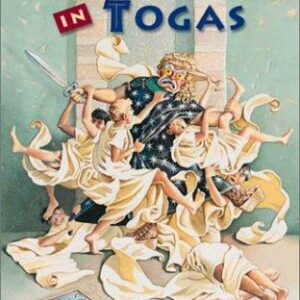Enduring Legacy
$24.95
| Title | Range | Discount |
|---|---|---|
| Trade Discount | 5 + | 25% |
- Description
- Additional information
Description
Explores the crucial role of rhetoric and oratory in creating and propagating a “Lost Cause” public memory of the American South
Enduring Legacy explores the vital place of ceremonial oratory in the oral tradition in the South and analyses how rituals such as Confederate Memorial Day, Confederate veteran reunions, and dedication of Confederate monuments have contributed to creating and sustaining a Lost Cause paradigm for Southern identity. Towns studies in detail secessionist and Civil War speeches and how they laid the groundwork for future generations, including Southern responses to the civil rights movement, and beyond.The Lost Cause orators that came after the Civil War, Towns argues, helped to shape a lasting mythology of the brave Confederate martyr, and the Southern positions for why the Confederacy lost and who was to blame. Innumerable words were spent—in commemorative speeches, newspaper editorials, and statehouse oratory—condemning the evils of Reconstruction, redemption, reconciliation, and the new and future South. Towns concludes with an analysis of how Lost Cause myths still influence Southern and national perceptions of the region today, as evidenced in debates over the continued deployment of the Confederate flag and the popularity of Civil War reenactments.
Explores the crucial role of rhetoric and oratory in creating and propagating a “Lost Cause” public memory of the American South
—Charles Reagan Wilson, author of Judgment and Grace in Dixie: Southern Faiths from Faulkner to Elvis and Baptized in Blood: The Religion of the Lost Cause, 1868-1920 “Town’s analysis is beneficial and informative as a rhetorical history of Lost Cause rhetoric. . . . [and] encourages scholars to consider how southern rhetorical history and mythology still echoes within state and national discussions today.”
—Rhetoric Public Affairs “No southern historian has ever brought such a wealth of source material to bear on a subject. Primary sources dominate the manuscript, in every chapter. The manuscript has a solid core of rhetorical/artifactual sources that, woven carefully together, never waiver from the centrality of Town’s thesis – Lost Cause rhetoric tells the story of the South. No other region of the country can make such a claim.”
—Carl Kell, author of Against the Wind: The Moderate Voice in Baptist Life “The Lost Cause, like William Faulkner’s past, is not dead—and, according to W. Stuart Towns, it’s not even past. In this deftly reasoned and cogently argued exploration of the rhetoric and ritual associated with the South’s most enduring myth, Towns stresses that 20th-century white Southerners learned most of what they feel about race, the North, the Civil War and Reconstruction, and themselves from Lost Cause rhetoric.”
—Civil War Magazine
W. Stuart Towns is a retired professor and department chair for the Communication Studies Department at Southeast Missouri State University. He also served as the department chair at the University of West Florida and Appalachian State University. He is the author of “We Want Our Freedom”: Rhetoric of the Civil Rights Movement and three other books on southern public address history. He is currently working on a book focusing on the public address of Hugh Hammond Bennett, the “Father of Soil Conservation.”
“By careful attention to the ceremonial settings and the persistence of the speech-making themes over several generations, the author shows how the status of the orators, the pervasiveness of the rituals, and the repetition of themes for so long created a new white-dominated southern public identity out of the social chaos, uncertainty, and despair at the end of the Civil War in the South.”—Charles Reagan Wilson, author of Judgment and Grace in Dixie: Southern Faiths from Faulkner to Elvis and Baptized in Blood: The Religion of the Lost Cause, 1868-1920 “Town’s analysis is beneficial and informative as a rhetorical history of Lost Cause rhetoric. . . . [and] encourages scholars to consider how southern rhetorical history and mythology still echoes within state and national discussions today.”
—Rhetoric Public Affairs “No southern historian has ever brought such a wealth of source material to bear on a subject. Primary sources dominate the manuscript, in every chapter. The manuscript has a solid core of rhetorical/artifactual sources that, woven carefully together, never waiver from the centrality of Town’s thesis – Lost Cause rhetoric tells the story of the South. No other region of the country can make such a claim.”
—Carl Kell, author of Against the Wind: The Moderate Voice in Baptist Life “The Lost Cause, like William Faulkner’s past, is not dead—and, according to W. Stuart Towns, it’s not even past. In this deftly reasoned and cogently argued exploration of the rhetoric and ritual associated with the South’s most enduring myth, Towns stresses that 20th-century white Southerners learned most of what they feel about race, the North, the Civil War and Reconstruction, and themselves from Lost Cause rhetoric.”
—Civil War Magazine
Additional information
| Dimensions | 1 × 6 × 9 in |
|---|







